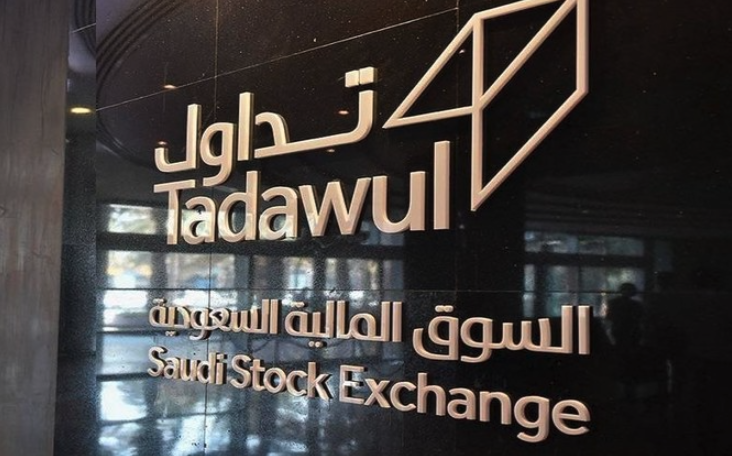RIYADH: Several startups across the Middle East and North Africa have secured significant investments, showcasing the region’s growing entrepreneurial ecosystem.
From proptech and fintech to edtech and automotive, early-stage startups are focusing on expansion and technological innovation in both local and international markets.
Saudi Arabian proptech startup Darent has closed an undisclosed seed funding round, led by Al Tawuniya Insurance.
The round also saw participation from the Morgan Stanley Inclusive Ventures Lab and BIM Ventures.
Founded in 2021 by Hanin Al-Subaie, Darent offers a property management tool for rental properties, connecting owners and tenants through its platform.
“We are deeply thankful to our partners for their immense trust. This funding round is a significant step toward achieving our vision of revolutionizing the vacation rental sector by effectively enhancing the tourist experience and delivering pioneering solutions that elevate the quality of the tourism sector in the Kingdom,” Al-Subaie said.
The company intends to use the new funding to enhance its artificial intelligence technology and support marketing efforts. This follows a $1 million pre-seed round raised in 2022, led by Watheeq Proptech Venture.
Seez raises $4.2m to fuel US expansion
UAE-based automotive software-as-a-solutions startup Seez secured $4.2 million from a group of international investors.
Established in 2015 by Tarek Kabrit and Andrew Kabrit, Seez provides software solutions to car dealerships and original equipment manufacturers to enhance customer experience and drive sales.
“As pioneers in bringing AI technology to the automotive sector, this investment underscores our commitment to innovation and disrupting the status quo. We’re excited to capitalize on our momentum, develop our product offerings, and push the boundaries of automotive solutions,” Tarek, the company’s CEO, said.
The latest investment will be used to further its expansion into the US market.
“Through this phase of expansion, we have secured key partnerships and achieved tremendous success in markets like the UK, Australia, Denmark, South Africa, New Zealand, Mexico, and the GCC region,” Tarek added.
UmrahCash secures $500k from Adaverse
Saudi-based fintech UmrahCash has received a $500,000 investment from Adaverse.
Founded in 2024 by William Phelps, UmrahCash enables pilgrims to access Saudi Riyals in Makkah, Madinah, and Jeddah, allowing payments to be made in their home countries, with the currency provided upon arrival in the Kingdom.
In 2023, Saudi Arabia experienced a significant increase in international Umrah pilgrims, welcoming 26 million performers, an 8.7 percent rise from the previous year.
Out of the total, 13 million were international pilgrims, marking a 61.8 percent increase and surpassing the previous record of 8.5 million in 2019. Many of these pilgrims came from emerging markets.
The new funding will support UmrahCash’s expansion within the Kingdom.
Sultan Ventures acquires Egypt’s Acasia Group
US-based venture capital firm Sultan Ventures has acquired Egyptian angel investment syndicate and incubator Acasia Group for an undisclosed amount.
Founded as Cairo Angels in 2011, Acacia Group is known for empowering Egyptian and regional entrepreneurs.
Sultan Ventures, established in 2009, specializes in early-stage investment and startup ecosystem development.
“What began 14 years ago as a grassroots initiative under Cairo Angels has grown into a regional leader, operating across every aspect of the venture continuum in the Middle East and Africa. The acquisition by Sultan Ventures enables Acasia to scale faster and tackle the region’s biggest challenges, amplifying impact and scaling early-stage ventures and deep-tech commercialization,” said Hossam Allam, chairman of Acasia Group.
The acquisition will extend Sultan Ventures’ reach into the Middle East and Africa region. Notably, Acasia Ventures will remain separate from this deal following a prior separation agreement.
SETTLE raises $2m in pre-seed funding
Egyptian fintech startup SETTLE has raised $2 million in a pre-seed funding round led by Shorooq Partners, with support from El Sewedy Capital Holding, Acasia Ventures, and Plus VC.
Launched in 2023 by Kamil Sayour and Mostafa Mobarak, SETTLE is a business-to-business payment platform designed to modernize financial operations for enterprises.
“We are deeply familiar with the challenges and potential for the B2B financial services market in Egypt. SETTLE is prepared to enhance that market by automating financial workflows for businesses of all sizes. With the backing of strategic investors, we are now positioned to scale quickly and efficiently,” Mobarak said.
The funding will accelerate SETTLE’s global expansion and enhance its platform’s capabilities.
LabLabee secures $3.4m in Seed funding
Algerian edtech company LabLabee closed a $3.4 million seed funding round, led by Reach Capital and supported by Classera, Brighteye Ventures, and e& capital.
Founded in 2021 by Samir Tahraoui and Mahfoud Mebarek, LabLabee offers practical, hands-on learning experiences in cutting-edge network technologies.
The investment will support LabLabee’s expansion into the US market, hiring new talent, and developing new technologies.
Plain Tiger attracts investment from COREangelsMEA
UAE-based B2B marketplace Plain Tiger secured an undisclosed investment from COREangelsMEA, part of COREangels International.
Founded in 2021 by Alexandra Polson and Oliver Baillie, Plain Tiger connects hotels with eco-friendly suppliers, aiming to save time and reduce environmental impact.
The company will use the investment to further develop its platform and expand its presence in the Middle East, focusing on the Saudi market. Earlier this year, Plain Tiger received additional funding from AngelSpark.
Farid raises $250k pre-seed round
Egyptian edtech startup Farid has raised $250,000 in a pre-seed funding round from Saudi businesswoman Amal Al-Ajlan.
Founded in 2024 by Mahmoud Hussein, Farid provides a platform focusing on character education and mental health support for children and youth aged 3 to 18.
The funding will be used to develop the platform and support Farid’s expansion into Saudi Arabia and the UAE.




























